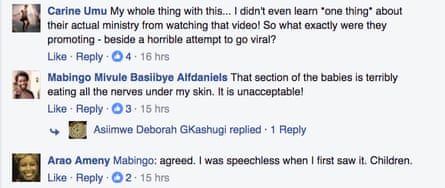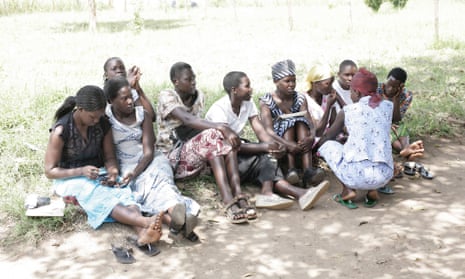Dear Dancing Missionaries,
I hope you are OK with that description – it is, after all, how you described yourself on your Facebook page.
This week you published a video of your time volunteering with Luket Ministries in Jinja, eastern Uganda. Seven white girls dressed in the Gomesi, the traditional dress of the Baganda tribe, dancing around to “share the joy” you experience “serving overseas on the mission field”.
The video came with a disclaimer that it was meant to “make people laugh, not to offend” but maybe that’s because deep down you knew it would?
Leaving aside the fact that you joked that “no mosquitos were harmed during the making of this video” – an insect that kills 100,000 Ugandans every year – your fun video openly mocked the day-to-day hardships African women face: travelling long distances to find clean water and carrying their children on their backs while doing hard manual labour.
As a Ugandan woman from the Baganda tribe, the Gomesi is part of my identity and ethnicity. It is part of our rituals during birth, marriage, funerals. It’s the nearest an item of clothing can get to being described as sacred.
If you had done any research into the people who welcomed you into their community you would know that a woman dressed in a Gomesi would never display the behaviour you depict in your video: shimmying around to Justin Timberlake’s club hit Sexy Back, only with a slight tweak to the lyrics announcing to the world that you are “bringing missions back”.

I do not object to your wearing of the Gomesi – this would be expected of you during our cultural ceremonies – but when I watched the video I felt like my culture was being ridiculed.
I also wonder who you were trying to emulate when you were scrubbing orange dirt off your feet, eating rolexes (a traditional Ugandan snack) seductively and consuming deworming tablets like glasses of wine on a girls’ night out.
When Arao Ameny, the Ugandan founder of the Association of African Journalists and Writers, pointed out that your video was culturally inappropriate the reply from Natasha Perryman, the creative director of Luket Ministries, was dismissive at best.

She claimed that “everything posted is indeed controversial these days” but that the video “came in a dream from God, the author of every creative thing”.
Perryman, who stars in the video, also added that the Ugandan pastors and staff that work with Luket Ministries viewed and edited the video before it was shared online to ensure it was accurately promoting the work of your mission which, according to your website, “pours individual talents into non-profit and humanitarian aid organisations around the world”.
But of course the pastors and staff agreed to it and as a fellow community development worker, I would like to remind you that helping people involves treating them with dignity: everyone involved in this work must constantly be checking their privilege.
When Perryman’s friend Scott Kingsbury joined the debate on Facebook he explained she was so committed to the people of Uganda she had sold all of her belongings so that she could serve them.
But that didn’t come across in the video. All I saw was a group of privileged, sexualised white girls mocking our culture and our way of life. And it wasn’t just Ugandans who were offended. Other Americans pleaded with you to take it down, many baffled by your sense of entitlement.
After 24 hours you had removed the video which should perhaps serve as a reminder to everyone that in this social media age, lazy stereotypes about Africa do not go unchallenged for long.
Surely you read about Louise Linton’s adventures in Zambia, or was that the Congo? She was called out on Twitter for being scant on detail in her white saviour memoir that came out earlier this year.
Ugandans, and indeed other Africans, have access to the internet and I speak as one of many who is no longer prepared to tolerate the narrative of white saviours who are giving it all up to save us.
